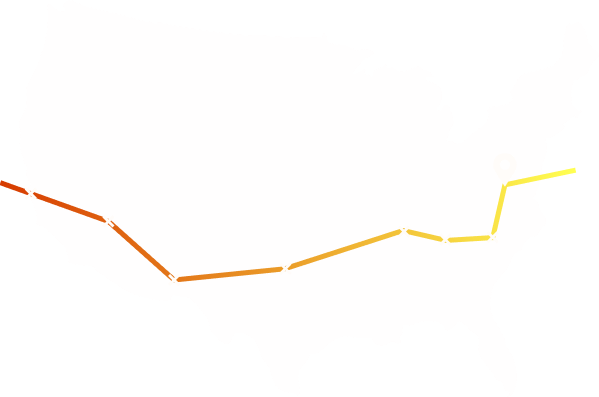Transportation Costs in Wilson, NC: Complete 2025 Guide
When considering Transportation Cost in Wilson, NC, residents and potential movers discover a refreshingly affordable alternative to North Carolina's major metropolitan areas. This charming eastern North Carolina city offers a unique combination of small-town accessibility and regional connectivity that keeps transportation expenses remarkably manageable. Whether you're planning a move to Wilson's welcoming neighborhoods or already call this community home, understanding the complete transportation cost landscape helps you make informed financial decisions and maximize your budget.
Wilson's strategic location and well-maintained infrastructure create natural cost advantages that benefit everyone from college students to working families to retirees. The city's thoughtful urban planning, combined with North Carolina's reasonable vehicle-related fees and fuel costs, positions Wilson as an ideal choice for cost-conscious individuals who refuse to compromise on quality of life or regional accessibility.
Overview of Wilson, NC Transportation Infrastructure
Wilson's transportation infrastructure reflects decades of smart city planning that prioritizes both efficiency and affordability for residents. The city's strategic location in eastern North Carolina provides exceptional access to major regional destinations while maintaining the cost advantages of a smaller community.
The backbone of Wilson's transportation network includes several major highways that facilitate both local and regional travel:
- US-264 Business serves as the primary east-west corridor through downtown Wilson, connecting residents to regional employment centers and providing direct access to Greenville and the coast
- US-301 functions as the main north-south artery, linking Wilson to Rocky Mount's industrial corridor and providing efficient access to I-95 for long-distance travel
- NC-42 offers an alternative east-west route that many residents prefer for avoiding downtown traffic while accessing suburban developments
- US-117 provides additional north-south connectivity, particularly valuable for residents in Wilson's eastern neighborhoods
- I-95 access remains just 30 miles east via Rocky Mount, ensuring Wilson residents can reach major East Coast destinations without the expense of living directly along the interstate corridor
Key transportation corridors within Wilson include Nash Street, which anchors the downtown business district, and Tarboro Street, which connects residential areas to commercial zones. Forest Hills Road, Ward Boulevard, and Wesleyan Drive serve as primary arteries linking suburban neighborhoods like Forest Hills, Country Club Hills, and Westwood to the city center.
The North Carolina Department of Transportation maintains these crucial roadways, ensuring Wilson residents benefit from well-maintained infrastructure without bearing the full cost burden individually. Wilson Transit provides public transportation options that complement the road network, offering residents alternatives to private vehicle ownership for local travel needs.
This comprehensive infrastructure impacts transportation costs by reducing vehicle wear and tear, minimizing fuel consumption through efficient routing, and providing multiple transportation options that help residents optimize their transportation budgets based on individual needs and circumstances.
Public Transportation Costs in Wilson
Public transportation Wilson, NC offers exceptional value for residents seeking affordable mobility options within the city and surrounding areas. Wilson Transit operates as the primary public transportation provider, delivering essential services at rates significantly lower than comparable systems in larger North Carolina cities.
Wilson Transit's current fare structure reflects the city's commitment to accessible transportation:
- Regular adult fare costs $1.00 per ride, making it one of the most affordable public transit systems in North Carolina for single-trip travel
- Senior citizens aged 65 and older pay just $0.50 per ride, recognizing the fixed-income challenges many retirees face while ensuring continued mobility
- Students with valid identification receive discounted fares of $0.50, supporting educational access and reducing transportation barriers for young people
- Monthly unlimited passes are available for $25, providing significant savings for regular commuters and offering budget predictability for transportation planning
- Transfers between routes are free within a two-hour window, allowing passengers to reach destinations requiring multiple bus connections without additional fare charges
The Wilson Transit system covers key areas including downtown Nash Street, major shopping centers along Ward Boulevard, residential neighborhoods in Forest Hills and Sherwood Forest, and important community destinations like Wilson Medical Center and Wilson Community College. Route frequency varies by location, with downtown and major corridor routes operating every 30-45 minutes during peak hours.
Regional transportation options expand Wilson residents' mobility without requiring personal vehicle ownership:
- Greyhound intercity bus service connects Wilson to major cities throughout the Southeast, with typical fares ranging from $25-75, depending on destination and booking timing
- ECU Transit connections provide affordable access to Greenville for students and workers, with semester passes available through East Carolina University
- Amtrak access via Rocky Mount (30 minutes away) opens up affordable rail travel along the East Coast corridor, with advance booking often yielding significant savings over last-minute airline tickets
For more information about Wilson's public transportation options and schedules, residents can visit the official Wilson, NC website for current routes, timetables, and fare information.
Ride-sharing services like Uber and Lyft operate in Wilson, though availability can be limited compared to larger cities. Typical ride-sharing costs within Wilson range from $8-15 for most local trips, making these services practical for occasional use rather than daily transportation needs.
Vehicle Ownership and Operating Costs
Vehicle expenses in Wilson remain notably reasonable compared to urban areas throughout North Carolina, making car ownership accessible for most residents while supporting the regional mobility that Wilson's location offers.
Initial vehicle costs in Wilson reflect both the local market dynamics and North Carolina's reasonable fee structure:
- Used vehicle prices in Wilson typically run 10-15% below state averages, with local dealerships along Wesleyan Drive and Ward Boulevard offering competitive pricing due to lower overhead costs than urban markets
- New car dealerships maintain smaller inventory volumes but often provide more personalized service and flexible negotiation, particularly for residents willing to special-order vehicles
- Vehicle registration and title fees through the North Carolina Division of Motor Vehicles cost $56 for registration plus $56 for title transfer, with additional fees for specialty plates or expedited processing
- Sales tax implications follow North Carolina's standard rate of 3% on vehicle purchases, significantly lower than many states, and helping keep initial ownership costs manageable
Ongoing vehicle expenses in Wilson benefit from the city's reasonable cost of living and efficient infrastructure:
- Gasoline prices consistently track 2-5 cents below state averages, with competitive pricing among local stations along major corridors like Tarboro Street and Forest Hills Road
- Auto insurance rates average 15-20% lower than in North Carolina's urban areas, reflecting Wilson's lower crime rates, reduced traffic congestion, and favorable claims history
- Vehicle inspection costs follow state requirements at $13.60 annually, with numerous certified inspection stations throughout Wilson providing convenient access
- Maintenance expenses benefit from competitive local markets, with shops along Ward Boulevard and Wesleyan Drive offering services at rates typically 10-15% below metro area pricing
- Vehicle registration renewal costs $38.75 annually for standard plates, with online renewal options available for added convenience
Parking and storage costs in Wilson remain minimal compared to larger cities:
- Downtown parking along Nash Street offers mostly free street parking with reasonable time limits, plus several free public lots for extended stays
- Residential parking rarely presents challenges, with most homes including driveways or carports, and neighborhoods designed with adequate street parking
- Storage facility costs for boats, RVs, or additional vehicles range from $40-80 monthly for covered spaces, supporting Wilson's recreational lifestyle without breaking budgets
Commuting Costs from Wilson
Wilson, NC, commute costs reflect the city's strategic location within eastern North Carolina's employment corridor, offering residents access to diverse job markets while maintaining reasonable transportation expenses for daily travel.
Wilson's major commute routes serve different employment centers and lifestyle preferences:
- Wilson to Raleigh via US-264 Business covers approximately 45 miles in 50-60 minutes during peak hours, with fuel costs averaging $8-12 per round trip, depending on vehicle efficiency and current gas prices
- Wilson to Greenville via US-264 spans 30 miles in 35-40 minutes, making it popular among ECU employees and healthcare workers, with daily fuel costs typically ranging $6-9 for round-trip travel
- Wilson to Rocky Mount via US-301 requires 30 minutes for the 25-mile journey to the manufacturing and logistics hub, with round-trip fuel expenses averaging $5-8 daily
- Local commuting within Wilson from neighborhoods like Sherwood Forest and the Elm City Road area to downtown Nash Street business district typically involves 5-15 minute drives with minimal fuel costs under $3 daily
Cost-benefit analysis for regular commuters reveals several important considerations:
- Fuel costs versus time savings often favor Wilson-based residence for regional workers, as the time differential compared to living closer to work rarely exceeds 15-20 minutes, while housing costs can be 20-30% lower
- Vehicle depreciation from daily commuting adds approximately $0.12-0.18 per mile in wear and tear costs, making longer commutes a significant factor in total transportation budgets
- Alternative transportation for regular commuters includes carpooling networks organized through major employers, particularly for ECU and Raleigh-area workers
- Remote work flexibility increasingly allows Wilson residents to access higher-paying metropolitan job markets while maintaining lower living costs, fundamentally changing commute cost calculations
The total monthly commuting cost for Wilson residents typically ranges from $150-350, depending on destination frequency and vehicle efficiency, representing significant savings compared to urban housing premiums that often exceed these transportation costs by substantial margins.
Moving and Relocation Transportation Costs
When planning relocation, Wilson, NC, moving costs present pleasant surprises for families accustomed to metropolitan area pricing structures. The city's accessible location and competitive service market create favorable conditions for both local and long-distance moves.
Local moving costs within Wilson and the surrounding areas benefit from the region's competitive market:
- Truck rental rates available near Forest Hills Road average $29.95-39.95 daily for local moves, with mileage charges of $1.29-1.99 per mile depending on vehicle size and rental duration
- Local moving companies like Smart Move offer competitive rates for Wilson area relocations, with full-service local moves typically ranging $400-800 for average-sized homes, depending on distance and services required
- DIY versus professional moving cost comparison often favors professional services in Wilson due to competitive pricing and the time savings, which are valuable for working families
- Storage unit costs during transition periods range from $45-120 monthly, depending on size requirements, with climate-controlled options available for sensitive items
Long-distance moving to Wilson offers several cost advantages:
- Interstate moving costs to Wilson from major cities often run 10-15% below costs for moves to urban North Carolina destinations, reflecting lower delivery costs and reduced urban congestion factors
- Factors affecting moving quotes include distance, shipment volume, packing services, and seasonal timing, with Wilson's accessible location typically reducing transportation surcharges
- Seasonal pricing variations show Wilson moves cost 15-25% less during fall and winter months compared to the peak summer season, providing substantial savings for flexible movers
- Hidden costs to budget for when relocating to neighborhoods near downtown Wilson include utility connection fees, which average $150-250 total for basic services
First-month transportation setup costs for new Wilson residents include several predictable expenses:
- Vehicle registration transfer fees through Wilson County DMV total approximately $150-200, including title transfer, registration, and any required inspections
- New resident setup costs for areas like Country Club Hills and Westwood may include parking permits or homeowners association fees, though most Wilson neighborhoods have minimal additional transportation-related costs
- Setting up insurance with local agents on Tarboro Street often yields savings of 10-20% compared to previous coverage, particularly for residents moving from higher-crime urban areas
- Initial transportation needs for accessing Wilson Medical Center, Wilson Community College, and local dining establishments like Parker's Barbecue can be budgeted at $50-75 for the first month while establishing routine travel patterns
Transportation Costs for Different Demographics
Affordable transportation in Wilson, North Carolina, serves diverse demographic groups with varying needs, priorities, and budget constraints throughout the community.
Students and young adults find Wilson particularly accommodating for transportation needs:
- College student transportation options benefit from Wilson Community College's central location and Barton College's accessible campus, with most students able to walk or bike to classes from nearby housing
- ECU Transit connections provide affordable access to Greenville for students commuting to East Carolina University, with semester passes often costing less than monthly parking fees in Greenville
- First-time car buyer considerations in Wilson's Raleigh Road corridor include access to multiple dealerships offering financing programs designed for young adults building credit histories
- Ride-sharing and alternative transportation for accessing downtown entertainment near The Foundry remains cost-effective for occasional use, with most local trips costing $8-12
Working families in Wilson benefit from transportation infrastructure designed around family needs:
- Multi-vehicle household budgeting for families in Forest Hills and Sherwood Forest typically involves $350-550 monthly for two vehicles, including fuel, insurance, and maintenance costs
- School transportation considerations for Wilson Preparatory Academy and other local schools often eliminate the need for family transportation during school hours, reducing daily driving requirements
- Activity-related transportation costs for accessing ECU Health Wilson medical appointments and local dining, like Bill's Barbecue and Mama's Pizza, remain minimal due to Wilson's compact geography
Seniors and retirees discover Wilson's transportation options are particularly well-suited for fixed-income lifestyles:
- Fixed-income transportation planning benefits from Wilson Transit's senior discounts and the city's walkable downtown core along Nash Street for essential services
- Medical transportation options and costs include affordable taxi services, volunteer driver programs through local churches, and Wilson Transit routes serving major medical facilities
- Senior-specific discounts and programs extend beyond public transit to include reduced-rate ride services and community transportation assistance for grocery shopping and appointments
Seasonal and Weather-Related Transportation Costs
Wilson's moderate climate and eastern North Carolina location create predictable seasonal transportation cost variations that residents can anticipate and budget for effectively.
Winter transportation costs in Wilson remain minimal compared to northern climates:
- Hurricane season preparation and evacuation costs may require occasional fuel and lodging expenses, though Wilson's inland location reduces evacuation frequency compared to coastal areas
- Winter weather vehicle preparation involves minimal costs for occasional ice storms, typically requiring only basic supplies like ice scrapers and emergency kits totaling under $50 annually
- Seasonal maintenance schedule and costs follow predictable patterns, with spring and fall tune-ups averaging $150-250 annually for preventive maintenance
- Weather-related insurance considerations in Wilson carry lower premiums than coastal areas, though comprehensive coverage remains advisable for storm-related vehicle damage protection
The predictable seasonal patterns allow Wilson residents to budget transportation costs with greater accuracy than areas subject to extreme weather variations or frequent natural disasters.
Money-Saving Transportation Tips for Wilson Residents
Smart Wilson residents employ various strategies to minimize transportation expenses while maximizing mobility and convenience throughout the region.
Cost-cutting strategies that work particularly well in Wilson include:
- Carpooling and ride-sharing opportunities are organized through major employers like ECU Health Wilson and local manufacturing facilities, often reducing individual commuting costs by 50-75%
- Maintenance scheduling to prevent major repairs takes advantage of Wilson's competitive service market, with regular maintenance typically costing 15-20% less than crisis repairs
- Fuel-efficient driving in Wilson's traffic patterns benefits from the city's well-timed traffic signals and minimal congestion, allowing drivers to maintain steady speeds that optimize fuel economy
- Taking advantage of local discounts and programs includes Wilson Transit passes, senior discounts, and employer-sponsored transportation benefits
Long-term savings strategies provide substantial benefits over time:
- Vehicle purchasing timing and negotiation leverage Wilson's smaller market dynamics, where dealers often provide more personalized service and flexible terms than in high-volume urban locations
- Insurance shopping and bundling opportunities with local agents frequently yield better rates and more comprehensive coverage than online-only options, particularly for bundled home and auto policies
- Planning major transportation decisions around life changes helps Wilson residents optimize timing for vehicle purchases, insurance changes, and transportation method selections
Conclusion and Planning Resources
Wilson's transportation cost advantages extend from downtown Nash Street to suburban neighborhoods, creating exceptional value for residents across all demographics and income levels. Transportation Cost in Wilson, NC, offers exceptional value through reasonable public transit fares, competitive vehicle ownership costs, strategic regional location, and comprehensive infrastructure that minimizes daily transportation expenses.
Whether you're considering a move to Forest Hills, Sherwood Forest, or the Raleigh Road corridor, Wilson provides affordable transportation solutions that support both daily needs and regional connectivity.
Planning a move to Wilson, NC? Smart Move specializes in cost-effective relocations to the Wilson area, combining years of local expertise. Our experienced team understands the local transportation landscape and can help make your move seamless.
Contact Smart Move today for a free moving quote and discover how we make relocating to Wilson's welcoming neighborhoods stress-free and affordable.



